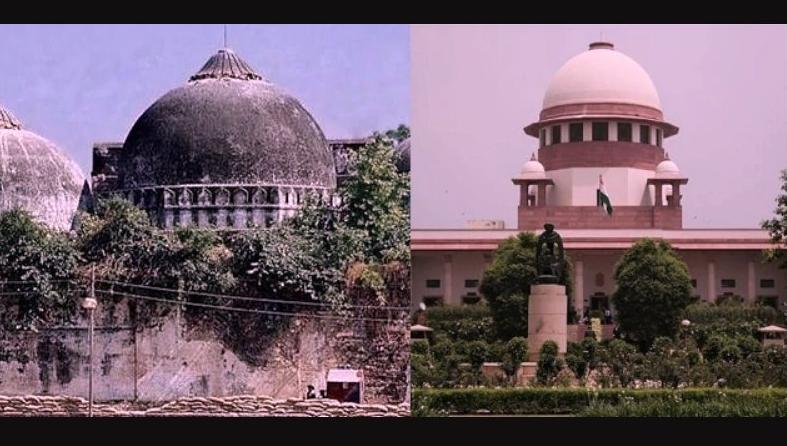Historic Verdict Meant to Create a New History
By :
Notice: Trying to get property 'fName' of non-object in /home/u589520015/domains/observerdawn.com/public_html/module/Application/view/application/index/news.phtml on line 23
Notice: Trying to get property 'lName' of non-object in /home/u589520015/domains/observerdawn.com/public_html/module/Application/view/application/index/news.phtml on line 23

AYODHYA ISSUE
Barring
pseudo-secularists and sections of minority, entire nation applauded the recent
Apex Court verdict on Ram Janmabhoomi – Babri Masjid. Majorities have shown
their utmost satisfaction and fulfillment.
As
the unanimous verdict of the Supreme Court has been received unanimously by the
citizens, it shows the strength of the Indian democracy, the constitutional
framework and India’s judicial system. The prevalent scenario showcases a
process where an extremely grievous issue can be resolved within the peripheral
of Indian law and justice.
If
we go to the historical retrospect, we see that the issue of Ram Janmabhoomi is
not a new. Instead, it is traced back to the early 16th century. However, the
issue was lingered by the concerned subordinate as well as the higher courts
for decades. Possibilities of an obvious social or political turmoil, as were
anticipated by the then rulers, might be the reason behind lingering of the
court’s decision.
But
ultimately, the Supreme Court’s decision reached to a conclusion in November
2019. Though, the verdict will recorded in the history with golden letters.
No
doubt, the Hon’ble judges of the bench have set an example to be emulated by
others. The final decision showed that even the most difficult and complex
challenges can be met with zeal, enthusiasm and commitment. It clearly shows
that any case can be resolved and a solution can be found even in most extreme
circumstances.
Till
recently, the entire nation went through a lengthy and unbearable journey in
getting the Ayodhya verdict in favor of the construction of a grand temple of
lord Ram and that too, at his real birthplace.
A
series of debates and discussions on Shri Ram Janmanbhoomi has taken place over
the decades, while, its influence can be realized on the social, judicial,
historical and religious issues, apart from other matters in the society.
The
decision has further glorified the strength of Indian constitution, judiciary,
judicial procedures, socio-political environment and its democratic values.
The
experts believe that the verdict cannot be seen as the victory or defeat of any
particular community, instead it is the outcome of the multifarious and
extensive debates and dialogues, which often helped to address these issues
efficiently.
Adequately,
known for its remarkable plurality, the Indian society seems to have completed
a long journey believing and practicing these values.
In
the meantime, the Prime Minister, Narendra Modi, ostensibly has incessantly
appealed the masses saying that the verdict is neither a win nor a loss for any
individual or community.
The
Indian Prime Minister also emphasized on maintaining law & orders so as to
strengthen the Rashtrabahakti (Patriotism) with selfless devotion.
Besides,
the BJP National President, Amit Shah, and other saffron stalwart also stressed
that this decision would further strengthen India’s unity, integrity and great
culture.
Apart
from other sources and resources including historical and religious or
mythological texts, the Archaeological Survey of India (ASI) had also traced a
pre-existing structure before the Babri Masjid was built.
The
ASI team, on the direction of the Allahabad High Court of Uttar Pradesh, had in
2003 excavated the Ram Janambhoomi/Babri Mosque site. Interestingly, altogether
52, out of all 131 laborers that were engaged in the excavations of the site,
belonged to the muslim community. However, in August 2003 the ASI report was
handed to the concerned bench of the Allahabad High Court.
